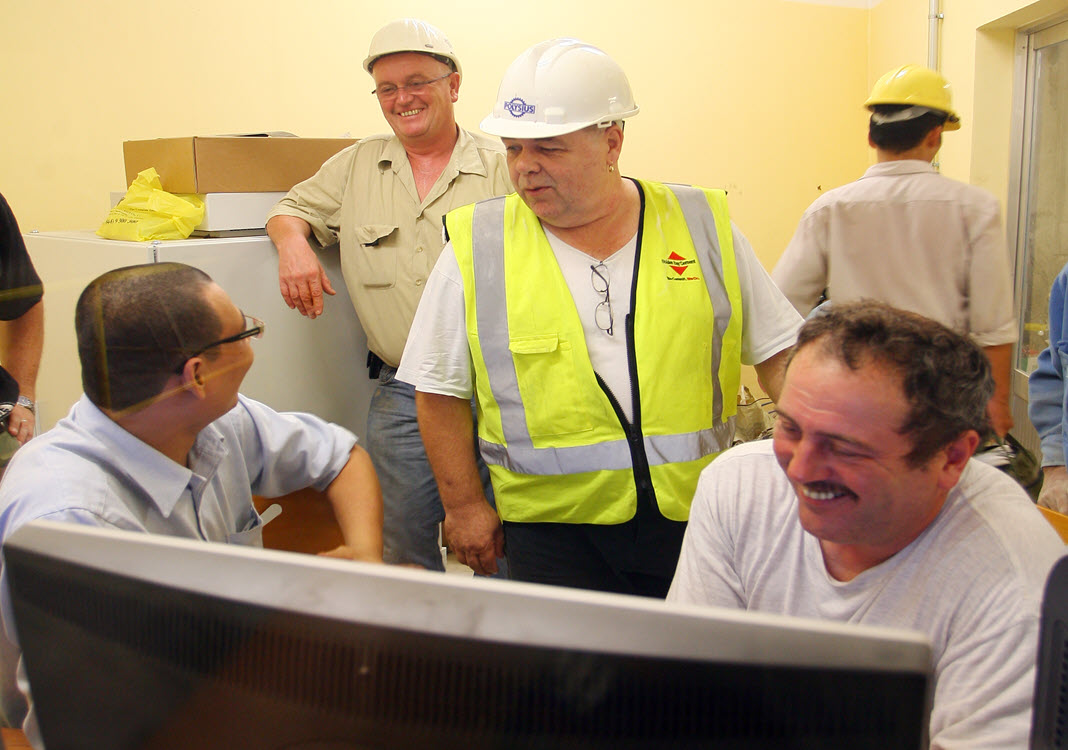Many international institutions, investors and economic experts have noted that Vietnam is having an opportunity to attract the huge international capital flow. However, they have also delved into the issue of whether the country can take advantage of this opportunity, especially the issue of high-quality human resources, one of the major bottlenecks to this endeavor.
Foreign direct investment (FDI) in Vietnam in the first five months of this year was US$10.9 billion, of which fresh capital was US$7.4 billion, up 15.2% from the year-earlier period, and additional capital was US$3.5 billion, soaring 31.4% year-on-year. The strong foreign capital flow into Vietnam is a highlight in the wake of the Covid-19 heavy devastation with serious impacts on trade and investment.
Over the long term, most opined that countries like Vietnam will continue to benefit greatly from the international capital flight from China. However, whether they can take advantage of this opportunity or not is another story, as FDI capital may bring negative consequences if there is no appropriate selection. In other words, the selection of FDI projects with high technology, grey matter content and added value is the most necessary and important factor for this opportunity.
Prime Minister Nguyen Xuan Phuc has recently decided to set up a special team to welcome giants, or projects of big multinationals, high-tech groups and leaders of supply chains, to Vietnam. Nevertheless, the country is plagued with many bottlenecks which can restrict the capital inflow. While issues like sites and infrastructure can be solved with site clearance and strong public investment policies, constraints in logistics or supporting industries cannot be removed overnight. Above all, it is the issue of high-quality human resources for projects with high technology and at the upper end of the supply chain.
Over the past years, most FDI projects in Vietnam have focused on simple processing or assembly, and so have employed mainly unskilled workers. To attract successfully high-tech projects, the demand for high-quality manpower is becoming more urgent than ever. However, it must be admitted that the current human resources are still unable to meet both qualitative and quantitative criteria of those projects.
One important reason is the development of the education and health sectors over the past many years has yet to meet expectation. The mechanism to attract talents, overseas Vietnamese and Vietnamese students abroad remains poor, not to mention the capacity to meet the demand for high-tech economic development in the future. Therefore, for many FDI technology projects, high skilled foreign labor is an essential force for their complete and stable operations.

High-quality labor import
While it takes time to develop high-quality human resources but the current education and training policies in Vietnam remain inadequate, attracting foreign intellectuals and high-quality foreign labor to work in Vietnam should be considered a solution to prepare human resources to meet the demand of foreign invested enterprises as well as to call for more high-tech investors to choose the country as a potential destination.
Over the past many years, Vietnam has had an advantage in maintaining socio-political stability and steady economic growth versus other countries in the region. The country is also home to many famous sceneries, tourist attractions and resorts. After their visits to Vietnam, many foreigners have chosen the country for long-term residence and living. Still, one disadvantage that should be rectified is education and health. However, many local and foreign entities have begun investments in these two sectors.
Further, Vietnam has emerged not only as a success in fighting Covid-19 but also a humanitarian country with the policy of “leaving no one behind.” Efforts to save the infected English pilot, albeit costly, have apparently created a good impression on many foreigners, thus giving the country an opportunity to attract more foreign visitors.
The FDI inflow also needs accompanying services regarding law and finance, areas which require the participation of experts and intellectuals.
However, Vietnam’s policies for foreign labor still have many barriers. The current law allows only foreign labor in four positions, namely experts, chief operating officers, technical workers and managers, with the condition that Vietnamese labor cannot fill the positions. Foreigners currently work in Vietnam under the forms of labor contracts, in-company movements, assignments from parent companies and execution of economic or commercial contracts.
Early this year, the American Chamber of Commerce in Vietnam (AmCham) proposed that decrees guiding the implementation of the revised Labor Code should specify a new, reasonable process for applying labor permits for expatriates who are working in Vietnam and have been granted labor permits.
In addition, policies regarding welfare, insurance and income tax should be improved and revised to attract high-quality foreign labor to Vietnam as well as overseas Vietnamese. To make them attach long to Vietnam, immigration policies should also be made easier.
In reality, many countries have changed immigration policies to attract foreign labor. Japan, facing the population aging affecting its economic growth, issued a new immigration law in April to ensure enough labor for economic development. For high-skilled labor for industries in need, Japan grants indefinite term visas and allow them to bring their families.
There is a close relation and connection between economic development and high-tech investment projects and high-quality human resources. A multinational who wants to develop investment projects with high grey matter content often looks at local human resources, not merely incentives.
In the other way round, intellectual workers are attracted to and find opportunities in countries where there are high-tech enterprises and works which need their grey matter, not projects with outdated, environment polluting technologies. A simile is the eagle is not easy to live with the vulture or wealthy tourists shun places crowded with members of zero dong tours.
By Trieu Duong









